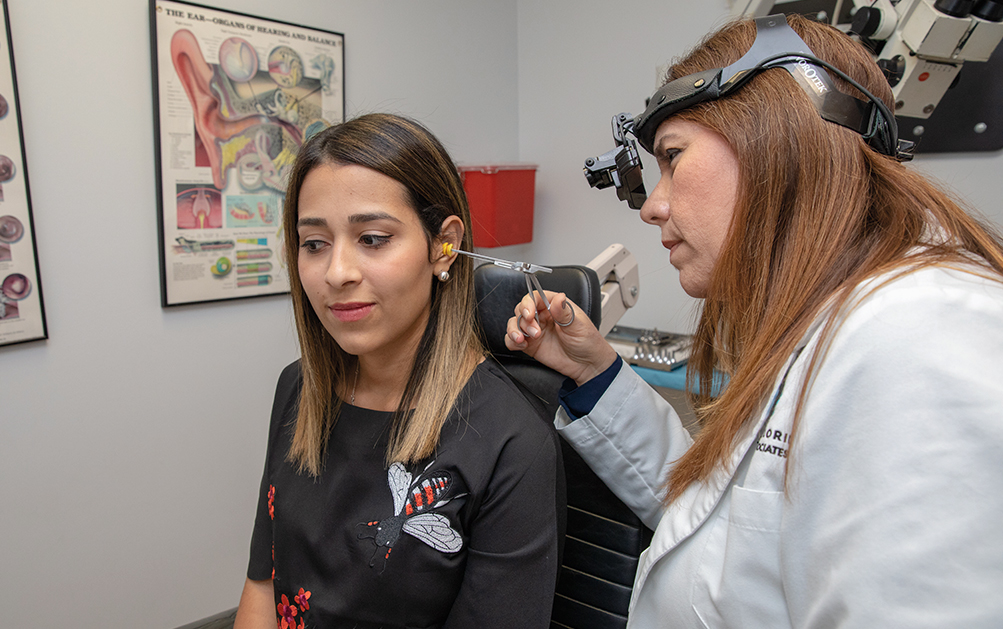Otology &
Hearing
Hearing loss occurs in all age groups but commonly occurs naturally with the aging process or as a result of injury or infection. Over the years, technology has also contributed to the loss of hearing with the abundance of loud sources of noise such as headphones and ear buds. Hearing loss has affected over 40 million Americans and can have a direct impact on your life and relationships.

